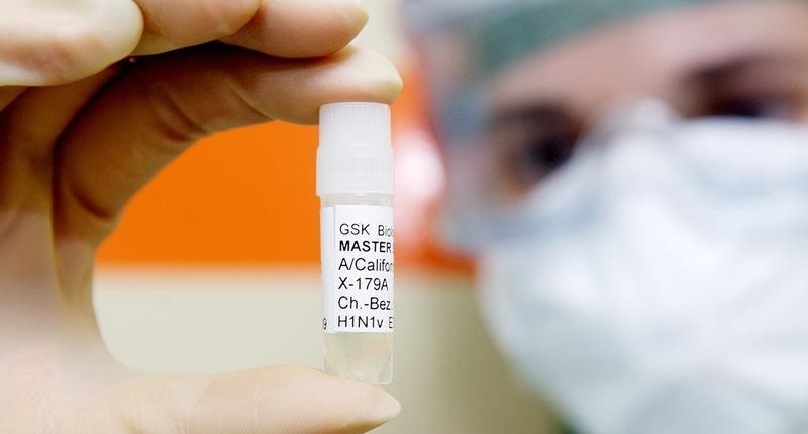Image:A handout file photo shows a technician holding a master H1N1 virus sample, for the pre-production of a vaccine against pandemic influenza A (H1N1) virus at a laboratory of GlaxoSmithKline in Dresden June 16, 2009. REUTERS/Gla…
![]()
By Kate Kelland
LONDON,(Reuters) – Scientists still don’t know if two commonly-used flu drugs — Roche’s Tamiflu and GlaxoSmithKline’s Relenza — really work in seasonal or pandemic flu outbreaks and say robust clinical trials are urgently needed to find out.
While such medicines are stockpiled by governments around the world and were widely used in the 2009/2010 H1N1 “swine flu” pandemic, no randomized trials were conducted then, so evidence is scant on how effective that approach was.
Publishing a report on the use of such antiviral drugs – known as neuraminidase inhibitors – against flu, experts co-led by Wellcome Trust director Jeremy Farrar said this had been a huge wasted opportunity and one that should not happen again.
“In the H1N1 pandemic, a lot of Tamiflu was taken and distributed, but we have no idea whether that was right,” said Chris Bulter, an expert on clinical trials at Britain’s Oxford University who co-led the review.
“Until we do the trials we don’t really know what we should be doing – and we’ve wasted huge opportunities in the past by not randomizing patients early on in pandemics.”
In their report on the evidence for using antivirals in seasonal flu, the experts found the medicines do significantly reduce deaths in hospitalized patients, particularly in those who start treatment within 48 hours of first becoming ill.
This could be critical in a flu epidemic, Farrar and Butler told reporters at a briefing in London.
Evidence also suggests anitivirals can reduce symptoms in seasonal flu by between 14 and 17 hours, they said, but it does not support routine use of the drugs for all patients since, unless the case is particularly serious, the benefits may not outweigh the side-effect risks.
The report was produced in response to a government request for an evidence-based report to inform future policy decisions.
Jonathan Ball, a professor of Molecular Virology at the University of Nottingham who was not involved in the report, said it raised some crucial issues:
“We know the virus can become resistant to these antivirals so it is really important they are only used where there is clear evidence of their value,” he said. “Also these drugs aren’t cheap, so government(s) could end up generating profit for drugs companies when there is no clear evidence that it is money well spent.”
“The evidence-base isn’t as strong as it should be. We risk misusing these drugs until this…knowledge gap is filled.”
(Editing by Richard Balmforth)
Copyright 2015 Thomson Reuters. Click for Restrictions.


